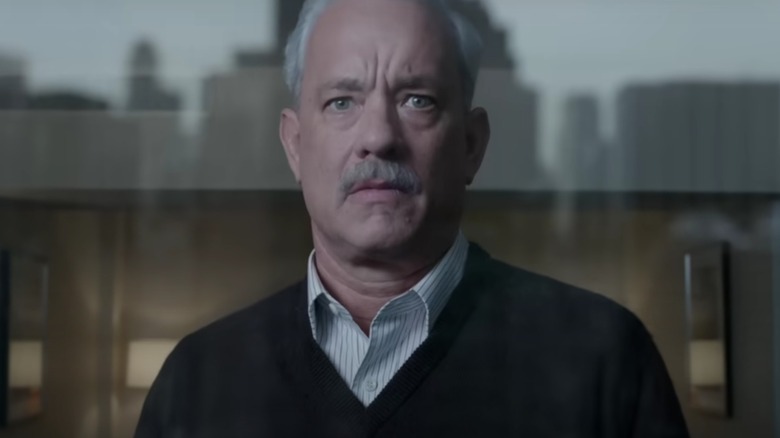Our Terms & Conditions | Our Privacy Policy
Why Some Airlines Banned An Acclaimed Clint Eastwood Movie

Warner Bros.
Clint Eastwood’s stellar career has given the world so many quality movies that even the most dedicated Clintstorians might have a hard time naming all of them off the cuff. He has collected enough awards to fill multiple trophy rooms and enough pedigree that even some of his more controversial movies have no problem finding new fans when they hit Netflix.
That being said, there are certain places where you flat out can’t watch your favorite Eastwood film, at least if said film happens to be “Sully.” The subject matter of the 2016 biographical drama about Chesley “Sully” Sullenberger’s (played in the movie by Tom Hanks) emergency passenger plane landing on the Hudson river has evidently (and, to be fair, understandably) caused some concern among airlines.
The film adaptation of “The Miracle on the Hudson” landing promptly became something of a hot potato when it comes to in-flight entertainment, with Virgin Atlantic happy to add the movie in its selection but several others turning it down because, in short, movies about passenger plane crashes can be a bit of a bummer when you’re watching them in a passenger plane. Notably, even American Airlines — which actually helped make the movie by shutting down several gates at New York’s LaGuardia Airport for filming — opted against showing “Sully” during the flights.
The Sully story isn’t Eastwood’s first speed bump

Warner Bros.
This is actually not the first time Eastwood’s career has experienced some pushback from a government or business entity (or vice versa). “Heartbreak Ridge,” his 1986 war film, was loved by the soldiers but hated by the government, which has a distinctly similar tone to an aviation movie that’s loved by the critics but eschewed by airlines. In the “Heartbreak Ridge” case, the Marine Corps expressed displeasure with the foul-mouthed, gung-ho behavior of Eastwood’s character, Tom Highway, but soldiers who had actually met such officers stated they enjoyed the film’s realism.
The actor-director has also played the “nuh uh” game from the other side of the table. Eastwood banned Coca-Cola products from his movies in the 1980s after he and Columbia Pictures (which was owned by the soft drink juggernaut at the time) had a disagreement over “The Karate Kid,” of all things.
Such things are, of course, but minor wrinkles in a career that spans several decades on both sides of the camera and has yielded no less than four Academy Awards. Still, sometimes it’s good to remember that even the most seasoned and celebrated A-list actor-directors can hit some of the many peculiar speed bumps that come with the strange, strange territory of making movies for a living.
[ad_1]
Images are for reference only.Images and contents gathered automatic from google or 3rd party sources.All rights on the images and contents are with their legal original owners.
[ad_2]



Comments are closed.